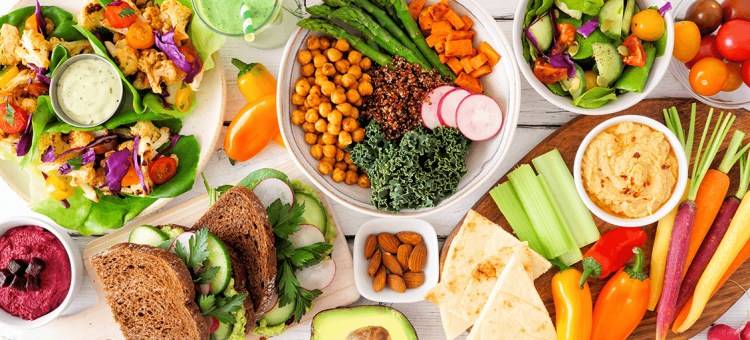Key findings:
- 1 in 3 Americans show greater commitment to healthier eating since the beginning of the pandemic
- Nutritional value and price leading criteria for food purchases, but Gen Z has higher standards compared to older generations
- 4 in 10 adults in the U.S. are currently on a diet, led by low-carb, no-sugar, and intermittent fasting
- Recent health food trends (i.e. alternative drinks, non-dairy milk, plant-based alternatives) most popular among Gen Z, with nearly 1 in 3 having tried plant-based meat alternatives
- Majority of consumers show high willingness to pay a premium for healthier food, but more hesitant to support social and sustainability causes
1 in 3 adults in the U.S. show greater commitment to healthier eating since the beginning of the pandemic
More than one in three (37%) people say they are focusing more on eating healthier since the start of the pandemic, with Gen Zers at the forefront. Gen Zs are especially health-conscious, with half citing an increased focus on their diet throughout the pandemic.
One in three (34%) consumers say they ‘always’ look for healthier alternatives for the food they eat, while roughly half (53%) say they ‘sometimes’ do so. Health foods such as alternative drinks, plant-based food alternatives, and non-dairy milk are most popular. One in five (21%) have tried meat alternatives such as Beyond Meat or Impossible Foods. Gen Zers, once again, lead all age cohorts in food trend participation.
Nutritional value and price leading criteria for food purchases, but Gen Z has higher standards compared to older generations
The majority of consumers cite nutritional value and price as the most important factors when purchasing food (61%), followed by taste (51%). Gen Z’s food purchasing preferences, however, go beyond nutrition and price. Taste is equally important to them as nutrition and value, while convenience, food safety, and brand values are also greater priorities to this group than Millennials, Gen Xers, and Boomers.
Nearly half (48%) of consumers look for food certification labels when purchasing food; Organic food certifications, such as “USDA Organic”, “Certified Organic”, or “Made with Organic Ingredients” are most prominent, followed by non-GMO verification and fair trade certification. Gen Z are more drawn to organic labels than other age cohorts, with nearly 1 in 2 (45%) looking for the label when shopping for food, compared to 36% of consumers overall.
4 in 10 Americans are currently on a diet, led by low-carb, no-sugar, and intermittent fasting
Millenials are more likely than any other age cohort to be on a diet: 46% are dieting in any manner, compared to 40% of the overall population. Low-carb diets are the most popular across all age groups, while keto diets are especially favored among Gen Zers.
Majority of consumers willing to pay a premium for healthier food, but more hesitant to support social and sustainability causes
More than 4 in 5 Americans are very or somewhat willing to pay more for nutritious food. They are, however, less enthusiastic about spending more money on sustainability, organic foods, and even less so on foods owned by brands committed to social and environmental justice.
Read more about our polling methodology here.



